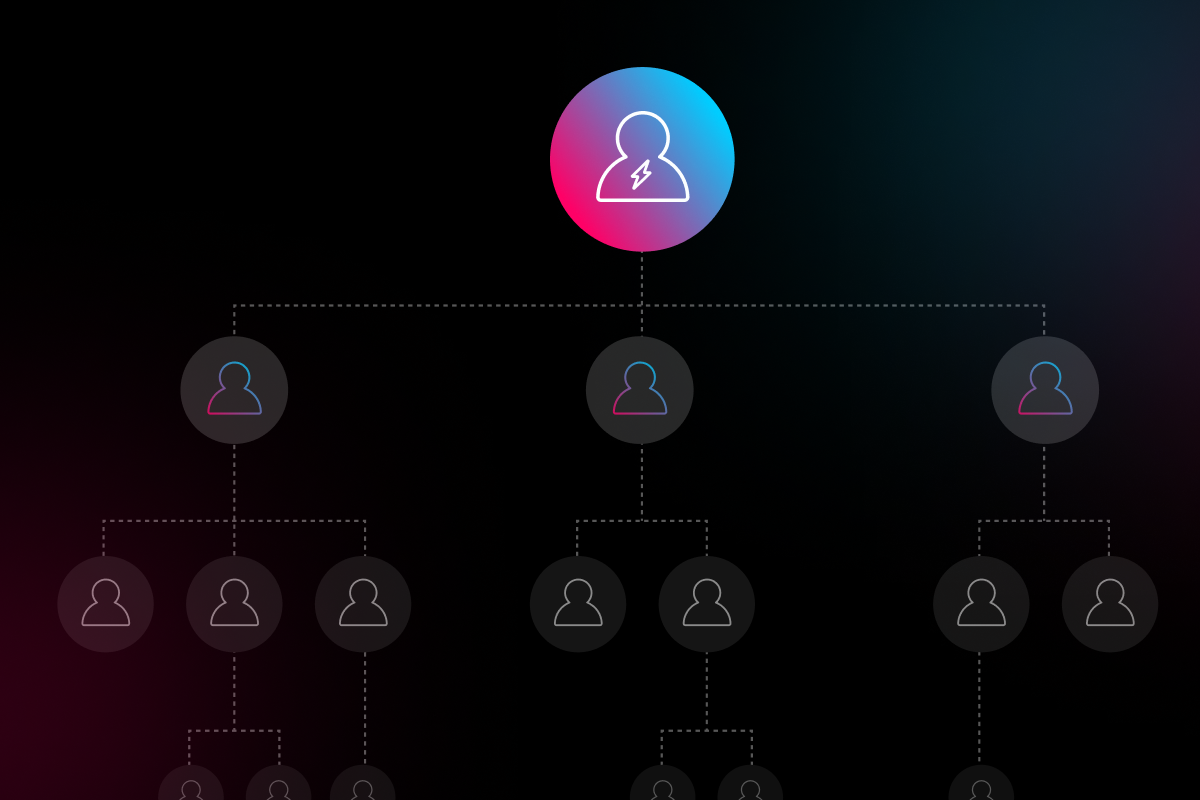
While predicting the future of IT is complex, businesses should strive to keep up with emerging trends. Being aware of new technologies offers a competitive advantage, while staying vigilant about the latest cyber threats helps to ensure critical assets and data remain protected.
There are several key trends shaping the future of IT. Perhaps the most significant is that it will become increasingly challenging to hire and retain entire IT teams in-house as competition for talent intensifies and economic uncertainty impacts budgets. Keep reading to learn more about the impact of this development, as well as other trends driving the future of IT for businesses.
The Top 7 Trends Foreshadowing the Future of IT in 2023
Whether it is leveraging new technologies to improve productivity, partnering with managed IT providers to gain access to specialized skill sets, or simply investing in effective cybersecurity measures, small businesses that are proactive about embracing future IT trends will be best positioned for success.
To better picture the future IT landscape, let’s look at the 7 defining trends in 2023:
-
- 5G wireless networks: The global economy is on the cusp of a significant transformation with the rollout of 5G wireless networks. This new generation of wireless technology promises to deliver faster speeds, lower latency, and more capacity than ever before.
- Cloud computing models: With the increasing use of cloud services across all sectors, we can expect to see further innovation in Software-as-a-Service (SaaS), Platform-as-a-Service (PaaS), and Infrastructure-as-a-Service (IaaS).
- AI and machine learning: As businesses strive to make sense of the vast amounts of information being generated daily, we can expect to see continued growth in the adoption of artificial intelligence (AI) and machine learning technologies.
- Edge computing: With the proliferation of IoT devices and connected sensors, there is an urgent need for intelligent edge computing solutions to analyze data in real-time. Edge computing enables faster feedback loops between the physical and digital worlds, which will be key to unlocking the full potential of emerging technologies.
- Data privacy laws: In recent years, we have seen a dramatic increase in data breaches and privacy scandals involving major tech companies, and legislators are taking notice. New regulations will provide greater transparency and accountability to consumers.
- Work in the metaverse: The metaverse is set to become more mainstream in the coming year. For small businesses in particular, this presents an increasingly accessible way to virtually connect with customers and engage employees.
- Web3: Ongoing tech developments will continue to bring us closer to a Web 3.0 environment, where blockchain, NFTs, and cryptocurrencies promise a more democratized version of the internet.

Work in the Metaverse
Find out what the future of work in the metaverse holds for small businesses with these insights from our panelists at Elevate.
Learn more >The Future of the IT Industry and IT Jobs
As noted above, the future of IT will be marked by heightened competition for talented workers. According to one study, the demand for skilled IT workers will outpace supply by more than 85 million people by 2030. If the gap remains unfilled, this shortage could lead to over $8.5 trillion in unrealized revenue.
While the demand for skilled workers continues to intensify, recruitment and retention will also become more costly. Both entry-level and expert IT jobs will be positioned to command higher salaries and better compensation packages, making it even more difficult for small businesses to compete.
To stay ahead, organizations will need to invest in automation and efficiency to improve productivity within existing resources. Partnerships with external service providers and managed IT solutions will also become more commonplace to achieve the required outputs without in-house resources.
The Future of IT Security
Data breaches, phishing, and ransomware attacks against small businesses have been on the rise, and this trend is expected to continue. In fact, many small businesses are considered to be at a higher risk of attack due to their limited resources to prevent and mitigate security threats.
The best way to combat cyber criminals is to invest in comprehensive IT security solutions. This includes implementing robust network monitoring and protection, adopting strong password security protocols, and continuously training employees on cybersecurity best practices. Small businesses should also create offline backups to avoid the risk of data loss, and software should be updated regularly to patch any security vulnerabilities.
Maintaining effective cybersecurity in-house can be challenging for small businesses, particularly given the work involved in achieving round-the-clock protection. Delivering security that scales in line with organizational growth is especially difficult. To stay ahead of ever-evolving threats, the IT trend toward outsourcing cybersecurity to dedicated experts will likely continue.

The State of Small Business Cybersecurity
Discover the most common vulnerabilities leaving small businesses exposed to cyber attacks.
Read the Report >The Future of IT Infrastructure
One of the most notable trends in the future ofs IT is the shift toward cloud-based solutions. As more businesses move away from on-premise infrastructures, the need for cloud-based services will only continue to grow. Smaller organizations, in particular, will benefit from cloud-based technologies as they are often more cost-effective and secure than on-premise systems.
We will also likely see a greater emphasis on automated technologies such as network monitoring, AI, and machine learning. These technologies will help businesses improve efficiency and productivity while also reducing the need for manual labor. Zero touch IT flows are another opportunity for organizations to streamline operations in the coming year, particularly when it comes to onboarding and device provisioning.
A leaner operating model and performance improvement are critical areas of focus for IT departments. These changes will require a shift towards outsourcing and the adoption of new technologies and best practices in critical IT infrastructure.
The Future of IT Management
In-house IT management is slowly becoming a thing of the past as small businesses turn to outside support for their technology needs. The main reasons behind this trend are the high cost of maintaining an in-house team and the gap in skills and expertise that can exist internally.
As a result, many businesses are opting to outsource their IT management needs to external providers who offer more comprehensive services at a lower cost. With distributed work models now firmly established, remote IT also offers more accessible support for small businesses – as well as the specialist skills required to manage IT for off-site employees.
Rather than a one-size-fits-all approach, the future of IT management will be focused on providing customized support for small businesses. This includes supporting the full range of operational and strategic IT requirements and offering flexible, scalable services to meet the evolving needs of organizations.
The Future of IT Outsourcing
IT outsourcing offers a range of benefits to small businesses, including access to specialized skills and expertise, improved service quality, cost savings, increased flexibility, and scalability.
As businesses face pressure to do more with less, outsourced IT support will become even more commonplace. To meet this demand, the future of IT outsourcing will be focused on providing simplified, integrated support with the ability to scale up or down in line with growth.
This shift is being driven by the need for businesses to focus on their core competencies while outsourced IT providers focus on delivering value. Therefore, the future of IT outsourcing is expected to provide a wide range of services that are tailored to meet the needs of small businesses. This will help these organizations to improve efficiency and productivity, while also reducing costs and improving overall performance.

Optimizing IT Costs in a Changing Economy
Gain actionable advice on how to optimize your IT costs in the this webinar from our Leadership Series.
Watch the Webinar >Prepare for the Future of IT
So, what does the future of IT hold for small businesses? While we can’t predict everything, we can be sure that advances in technology will continue to change and shape how businesses operate. In this environment, companies need to stay ahead of the curve and ensure they have access to the latest tools and solutions. Electric is committed to helping small businesses do just that. Contact us today to learn more about how Electric supports small businesses in their journey into the future of IT.



